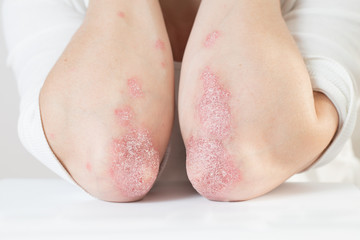
Psoriasis is not merely a skin condition—it is a persistent, systemic disease that challenges millions globally. This blog provides a comprehensive overview of psoriasis, delving into its causes, treatments, and strategies for improved daily living.
What is Psoriasis?
Psoriasis is an autoimmune condition that accelerates the life cycle of skin cells, causing them to build up rapidly on the surface of the skin. The resulting patches, known as plaques, are thick, red, and scaly. These can be painful or itchy and are most commonly found on the elbows, knees, scalp, and lower back.
Causes and Triggers
While the exact cause of psoriasis is not fully understood, it is believed to involve the immune system, genetics, and environmental factors. Certain triggers can initiate or worsen flare-ups, including:
- Stress
- Skin trauma, like cuts or scrapes
- Certain medications
- Infections
- Heavy alcohol consumption
Treatment Approaches
There is no cure for psoriasis, but multiple treatments can help manage the symptoms. Treatment plans are often tailored to the severity of the condition and the patient’s health status, and may include:
- Topical Treatments: Creams and ointments applied directly to the skin can reduce inflammation and cell turnover.
- Phototherapy: Exposure to ultraviolet light under medical supervision can significantly improve skin appearance.
- Systemic Medications: For severe cases, drugs that affect the entire body may be necessary.
- Biologics: These are targeted drugs that block specific parts of the immune system that are overactive in psoriasis.

Lifestyle Management
Managing psoriasis extends beyond medical treatments. Lifestyle changes can significantly impact the severity and frequency of outbreaks:
- Diet and Nutrition: Eating a balanced diet rich in anti-inflammatory foods can help. Some patients find relief by avoiding gluten, dairy, or other specific food triggers.
- Regular Exercise: Helps to manage weight and reduce stress, both of which can trigger psoriasis flare-ups.
- Stress Reduction: Techniques like meditation, yoga, or therapy can be beneficial.
Building Support Networks
Living with psoriasis can also take a toll emotionally. It’s important for those affected to seek support:
- Connect with Others: Many online and local support groups offer connections with others facing similar challenges.
- Educate Family and Friends: Helping those close to you understand your condition can improve relationships and increase support.
Conclusion
Although psoriasis can be a complex and challenging condition, understanding its nature and adopting a comprehensive management strategy can help those affected lead healthy, active lives. With advances in treatment and supportive care, many people with psoriasis achieve excellent disease control. Remember, every step taken towards understanding and managing psoriasis is a step towards a healthier, more comfortable life.





